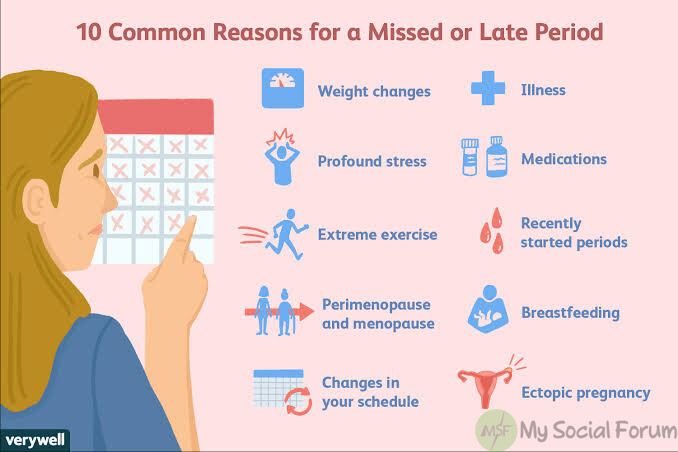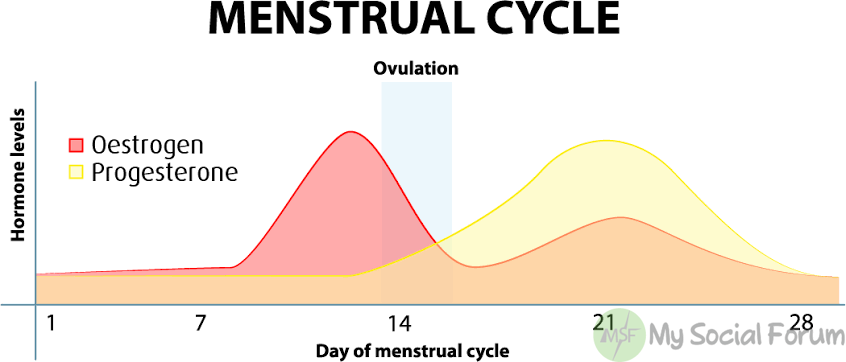A women having healthy menstrual cycle is a visible sign of a good reproductive health. However, the menstrual cycle of a new mother is disturbed, for a few months after delivery.
Immediately after having the baby, bleeding process occurs for a few days, and then stops. Quite often, there is a considerable gap between after delivery bleeding and the first regular period.
Once the lady passes with the phase of first postpartum period, the menstrual cycle becomes very unpredictable that is they can come earlier or later than usual, for months. This is really a cause of concern for women, and they immediately rush to their doctors for checkup.
Having irregular periods after delivery is perfectly normal, because it occurs due to various hormonal changes in the body. By the time, the body settles down to it’s usual routine, but the time frame for this settling down process varies from person to person.
Having Irregular Periods Is Normal After delivery?

Firstly this concept should be cleared in your mind that childbirth alters some hormones in the body. Therefore, the hormones that are a source of regular period takes a backseat. It is quite normal for women to experience these changes in the flow of their monthly period, post-delivery. Many factors are in the list when exactly the body gets back to its normal menstrual routine.
What are the Reasons Behind Irregular Menstrual Cycle After Pregnancy?

As the time passes, a woman’s body goes through a lot of changes, among which the changing levels of hormones is the most important factor. An altered menstrual cycle is responsible for these changes. Some other external factors also play a vital role in the irregularity of period after delivery.
1. Weight
It is natural that women tend to gain weight during pregnancy and this process continues rapidly after few months of delivery. On the other hand, some women lose weight tremendously, due to not having proper diet and sleep. In both cases, their is the great impact of hormone levels in the weight gain and loss of the body. The weight of the mother plays a significant role in deciding the time frame within which she switches back to having a normal menstrual cycle.
Also Read: Problems during Menstrual Cycle | Periods Symptoms | Periods In Pregnancy
2. Breastfeeding the baby

Mothers who breastfeed their children tend to get back to the normal cycle much later. The hormone responsible for inducing the secretion of milk from the mammary glands (prolactin) also had a great impact on the process of ovulation. Therefore, as long as a mother is breastfeeding her baby, the hormone of having a regular period is delayed. Only a successful ovulation culminates in menstruation, and therefore, your periods resume get normal later.
3. Altered Hormone Levels

An expecting mother’s body starts to adapt the alteration in the levels of hormones, in anticipation of the pregnancy. These hormones ate the source of preparing mother’s body for childbearing, birthing, and breastfeeding.
Unfortunately, the hormone levels do not come back to normal position, right after delivery. Factors like diet, exercise, breastfeeding, sex, and weight decides that when it returns to normal levels. Initially, the menstrual cycle becomes erratic and unpredictable for a few months, until the hormones get back to its normal condition.
4. Conditions before pregnancy

If you suffered from conditions such as PCOS (Polycystic Ovarian Syndrome), Hypo- or Hyper- Thyroidism, or any other condition that results in the fluctuation of hormones, you may suffer from the problem of having irregular periods after pregnancy. This is especially if you already faced issues with regularity of your menstrual cycle.
Also Read: Home Remedies For Period Pain Especially For Young Girls




































